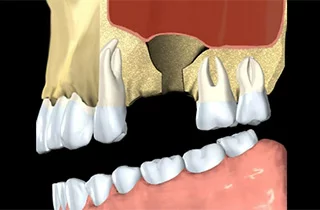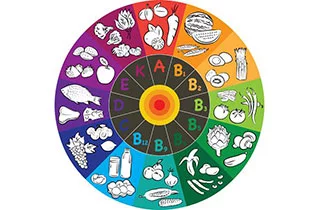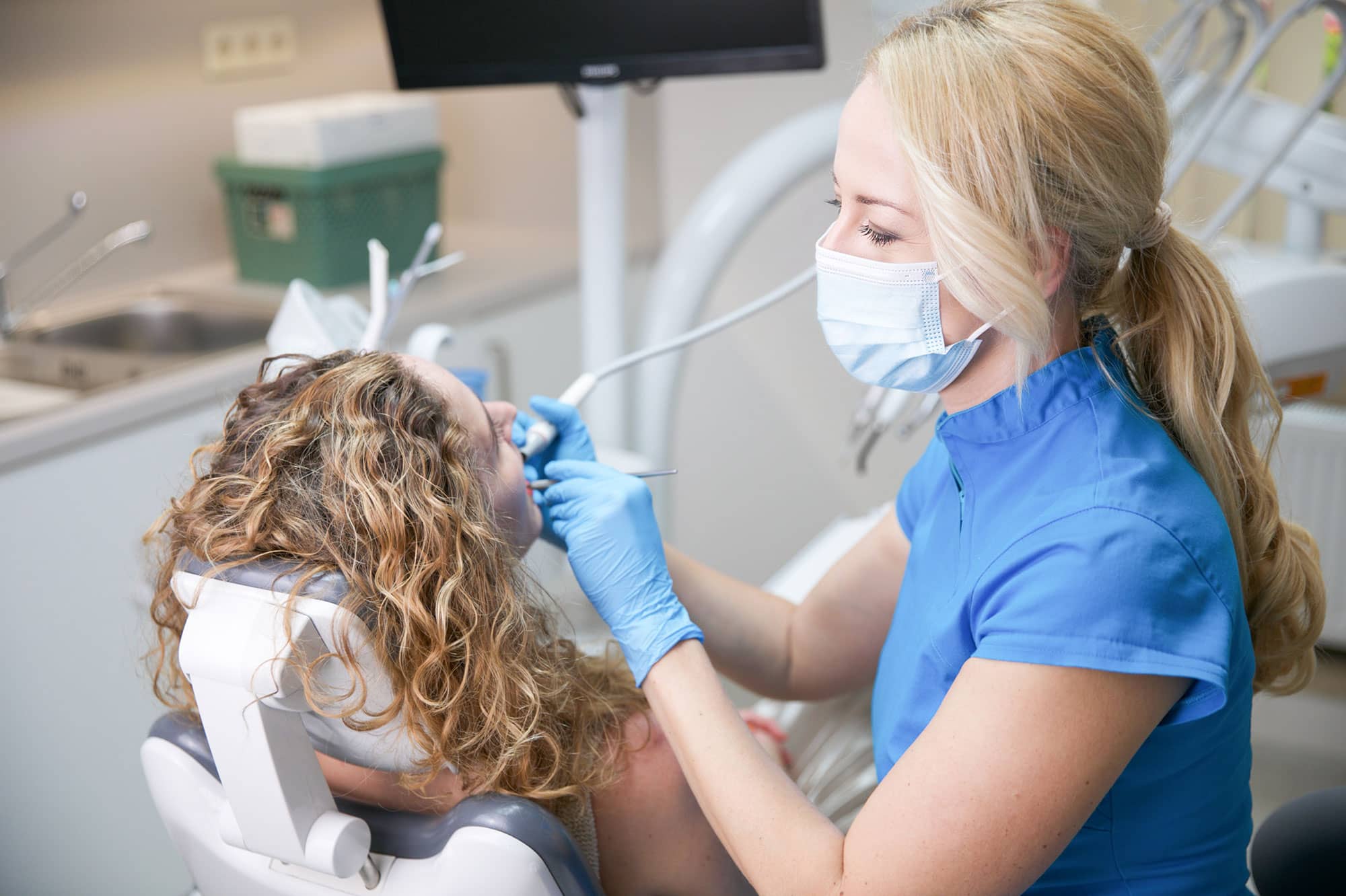It cannot be stressed enough that the best way to avoid diseases is to prevent them. With conscious decisions and care, we can do a lot for the health of our teeth, since many problems can be avoided with a healthy lifestyle. In order to keep our teeth gleaming and healthy, we have to maintain and raise their quality of them. Let’s see what we can do to keep our bones healthy.
The main points of our article are the following :

- The relationship between osteoporosis and tooth loss
- Diet
- Natural ways to build bone density: avoiding harmful foods
- Natural bone-building supplements: the role of vitamins.
- Building bones naturally: the role of minerals.
The relationship between osteoporosis and tooth loss.
Dental bone loss is due to two main causes: tooth loss and a disease called periodontitis. However, other diseases of the body can pose a threat like diabetes and osteoporosis. This is because these diseases can lead to the deterioration and weakening of the bones. Diseases affect the density and composition of bones and teeth. Thus, your teeth will be more vulnerable and they won’t be able to resist dental diseases. Bone density is used to measure the amount of calcium and other minerals in the bones. In many cases, osteoporosis is caused by malnutrition, hormonal imbalance, or other illnesses, so treating it requires a thorough examination. However, with a healthy lifestyle and diet, we can do a lot to maintain the health of our teeth and the strength of our bones. We will discuss these factors in detail below.
Diet.
A balanced, healthy diet has a favourable effect on the body and teeth. However, excessive caloric intake is the opposite of leading a healthy diet, and the other side is a one-sided, low-calorie diet. Research shows that diets that are consistently below 1,000 calories a day have a negative effect on bone density. However, the quality and quantity of food consumed are not the only things that matter when it comes to dental bone loss. Chewing your food is also extremely important to maintain bone density because the tooth needs constant stimulation for bone formation. Therefore, it is advisable to avoid diets that consist only of liquids, in which you don’t have to chew. The following food items are recommended for maintaining dental health and avoiding osteoporosis.
Vegetables.
The high vitamin and mineral content of vegetables increases bone mineral density, i.e. bone density. Eating vegetables is very important for children and older people as well. The minerals they contain are incorporated into the bones of the teeth during childhood and adolescence. It is extremely important for children to eat green and yellow vegetables.
Fruits.
The high vitamin and mineral content of fruits also has a beneficial effect on bone formation. In addition, it’s true for both the consumption of vegetables and fruits that chewing stimulates the jawbone, thus helping bone formation. It is also useful because chewing removes stuck food residues from between the teeth. This is why you should eat an apple after or between meals. However, we shouldn’t forget that some fruits are quite acidic, for example, citrus fruits. The acid in the fruits can erode the enamel and leach calcium from the teeth.
Proteins.
Protein makes up 50% of the volume of our bones. It is therefore no question about how important protein intake is for bone formation. Protein also helps calcium absorption and increases the body’s ability to process it. High-protein foods should be high-quality as well: fish, lean meat, and eggs, but legumes and nuts also contain large amounts of protein.
Calcium-rich foods.
 We often hear that by consuming calcium-rich foods, we can do a lot for the strength of our bones. 99% of the body’s calcium content is found in the bone tissue, which also functions as a calcium storage site. Calcium is most often associated with milk, although in addition to dairy products, calcium is found in a wide variety of foods. Vegetables were rich in calcium (in descending order): mushrooms, (cooked) cabbage, broccoli, chickpeas, white beans, etc. Nuts containing calcium: poppy seeds, sesame seeds, almonds, and peanuts. Fish: sardines, flatfish, tuna. Cheeses: parmesan, Brie, Emmentaler, Edam.
We often hear that by consuming calcium-rich foods, we can do a lot for the strength of our bones. 99% of the body’s calcium content is found in the bone tissue, which also functions as a calcium storage site. Calcium is most often associated with milk, although in addition to dairy products, calcium is found in a wide variety of foods. Vegetables were rich in calcium (in descending order): mushrooms, (cooked) cabbage, broccoli, chickpeas, white beans, etc. Nuts containing calcium: poppy seeds, sesame seeds, almonds, and peanuts. Fish: sardines, flatfish, tuna. Cheeses: parmesan, Brie, Emmentaler, Edam.
In addition to “staple foods”, certain herbs also contain large amounts of calcium, such as basil, thyme, oregano, and cinnamon.
Collagen.
Collagen is a principal protein found in our bones that helps the formation of bones, muscles, ligaments, and connective tissue. Research has shown that collagen plays an important part in maintaining bone health. Collagen has been successfully used in the treatment of osteoporotic diseases. Gelatin extracted from animal bones contains collagen in its natural form.
Foods were rich in Omega-3 fatty acids.
Omega-3 fatty acids have great anti-inflammatory properties and they help prevent bone loss since omega-3 reduces bone resorption and increases bone formation. In order to maintain the health of our bones, we have to pay attention to omega-3 and omega-6 intake, the proper ratio is 1:4 or less. In addition to sea fish, chia seeds, flax seeds, and nuts contain large amounts of omega-3 fatty acids.
Water.
Both rinsing your mouth with water and drinking water can help produce enough saliva and reduce demineralization (loss of minerals) that endangers your teeth. Saliva also contains phosphate and calcium.
Drinking clean water can also help wash away plaque and sugar residues.
Foods containing probiotics.
Certain probiotics are extremely helpful when it comes to oral health and tooth remineralization. You can take probiotics as supplements as well, but they can be found in some yogurts, live fermented cream products, and sauerkraut.
Natural ways to build bone density: avoiding harmful foods.
Proper nutrition and intake of nutrients are extremely important, but they can be damaging to your bones and teeth in excess.
Sugar
 Refined sugar: Refined sugar contains neither mineral nutrients nor vitamins. It doesn’t have positive effects, only effects that are noxious for health and strong bones. This harmful effect includes calcium metabolism as well. With a long-term refined sugar supply, due to sugar’s noxious effects on yet strong bones, the calcium content of bones diminishes.
Refined sugar: Refined sugar contains neither mineral nutrients nor vitamins. It doesn’t have positive effects, only effects that are noxious for health and strong bones. This harmful effect includes calcium metabolism as well. With a long-term refined sugar supply, due to sugar’s noxious effects on yet strong bones, the calcium content of bones diminishes.
Acidic food
Frequent consumption of acidic food can damage tooth enamel, causing it to lose its mineral content and become more easily decayed. However, after consuming strongly acidic food and drinks, immediate brushing is not recommended, and it is also worth being well-informed about the properties of different kinds of toothpaste
Excessive consumption of dairy products.
Despite the high calcium content of dairy products, experts don’t recommend consuming dairy in large quantities. This is because lactose, as a type of sugar, can also increase the acidity of the mouth.
To replace milk, it is recommended to buy the lactose-free version of soy, almond, and coconut milk.
Excessive starch intake.
Starchy foods contain simple carbohydrates which increase the amount of sugars in the oral cavity. Potatoes, rice, and bread contain a large amount of starch.
Building bones naturally: the role of vitamins.
Vitamin C.
Vitamin C deficiency plays a role in the development of gingivitis and can also cause hemophilia, among other diseases. Peppers, spinach, broccoli, cabbages, fresh fruits, and citruses help prevent the development of vitamin C deficiency.
Vitamin D.
 Among other things, vitamin D is important for the proper development of the teeth and bones, and it also helps your bones to absorb calcium. Foods rich in vitamin D include egg yolk and oily fish, but certain meats (liver, kidneys) also contain large amounts of vitamin D. In addition, sunshine enhances the production of vitamin D in the body. In winter, it is recommended to take supplements, but in summer the need for replacement is lower due to the increase in the number of sunny hours.
Among other things, vitamin D is important for the proper development of the teeth and bones, and it also helps your bones to absorb calcium. Foods rich in vitamin D include egg yolk and oily fish, but certain meats (liver, kidneys) also contain large amounts of vitamin D. In addition, sunshine enhances the production of vitamin D in the body. In winter, it is recommended to take supplements, but in summer the need for replacement is lower due to the increase in the number of sunny hours.
Vitamin K
Vitamin K plays an important role in the synthesis of bone protein as well as in informing the bone matrix. Mineral nutrients are built into the bone protein. If we do not have enough vitamin K, the damaged proteins are unable to bind minerals. This problem can occur as a consequence of an exaggerated use of antibiotics.)
Sources of Vitamin K: broccoli, lettuce, spinach, tomatoes, liver, milk, and dairy products.
Natural bone-building supplements: the role of minerals.
Calcium.
Calcium is the most important mineral for bone health. Since bone cells are constantly replacing themselves, it is necessary to replenish the minerals that build them. 99% of the calcium in our body is found in our bones and teeth, so bones and teeth act as storage as well. Calcium deficiency forces the body to remove calcium from the bones. Proper calcium intake is a complex issue. Calcium deficiency can be caused by improper calcium intake, poor calcium absorption, and/or excessive calcium loss. Phosphorus is a companion of calcium, and our biggest enemies are acid and certain bacteria when it comes to calcium. Foods that contain high levels of calcium include sesame seeds, poppy seeds, almonds, dairy products, parsley, and chives.
The magnesium
Magnesium promotes the production of enzymes and improves the metabolism of proteins, fats, and carbohydrates. Magnesium is essential for strong and healthy bones, teeth, and gums. Furthermore, magnesium influences the shape of lime crystals that are built into the bones. Sources of Magnesium: oilseeds, tuna, banana, cocoa bean.
Zinc.
Although we only need a small amount of zinc, it is very important since it helps replenish bone minerals. Zinc promotes bone growth and prevents bones from breaking down. Foods that contain zinc include liver, oysters, lentils, cocoa, broccoli, and cheeses.
Other minerals.
Many other minerals play an important role in bone formation and proper bone mineral density. It has been shown that consuming large amounts of potassium reduces urinary calcium excretion. Among other minerals, the previously mentioned phosphorus is just as useful.
Read about how to reverse bone loss in teeth. In this article, we have presented the most important food items, vitamins, and minerals that play an important role in bone formation. However, we also need to mention other factors as well, such as oral care, oral hygiene, lifestyle, and scientific and dental solutions. You can read about these in the next article.


